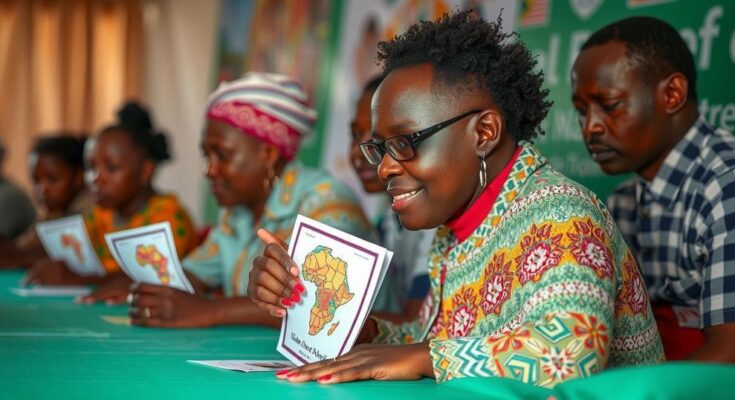The 2024 elections in Southern Africa revealed significant political changes, with long-established liberation parties losing ground due to a younger electorate prioritizing government performance over historical legacies. Botswana’s government was upended after nearly 60 years in power, while the ANC in South Africa lost its majority. As dissatisfaction with political performance rises, increased citizen engagement and protests signal deeper transformations in the region’s democratic processes.
In 2024, Southern Africa witnessed significant political shifts during elections, with long-standing liberation parties experiencing noteworthy challenges. As younger voters, born after colonial rule, increasingly prioritize governmental performance over historical credentials, several traditional ruling parties faced unprecedented defeats. In Botswana, the Botswana Democratic Party, in power for 58 years, lost its majority in a shocking election outcome. The African National Congress (ANC) in South Africa also suffered a dramatic decrease in support, marking a turning point in the nation’s post-apartheid political landscape. Meanwhile, in Namibia, the South West Africa People’s Organization (SWAPO) barely retained its majority amid its worst electoral performance since independence, signaling potential political change. Protests erupted in Mozambique following an election that extended the ruling party’s power amid widespread discontent, showcasing rising tensions across the region. With democratic processes under scrutiny, citizens increasingly demand accountable governance, reflecting a deepening engagement in the political sphere among Southern African populations.
Southern Africa’s political environment is characterized by relative stability compared to other regions in Africa, where military coups and armed conflicts are prevalent. Historically governed by liberation parties that achieved independence, many of these organizations are now struggling to retain their hold on power as the region’s demographics shift towards a younger electorate that lacks direct experience with colonialism. The socio-economic challenges faced, notably high unemployment and dissatisfaction with government performance, have catalyzed electoral change, compelling established parties to rethink their strategies and policies in response to a rising tide of public discontent.
The elections in Southern Africa in 2024 illustrate a profound transformation in the political dynamics of the region. Traditional liberation parties are confronting a generational shift among voters, leading to substantial electoral losses and rising citizen activism. As young populations demand better governance and accountability, the implications of these elections suggest a reconfiguration of political allegiances and priorities that could have lasting effects on Southern Africa’s democratic landscape. In this context, the call for responsive government has never been louder, indicating a potential departure from the legacies of past struggles for independence.
Original Source: apnews.com




